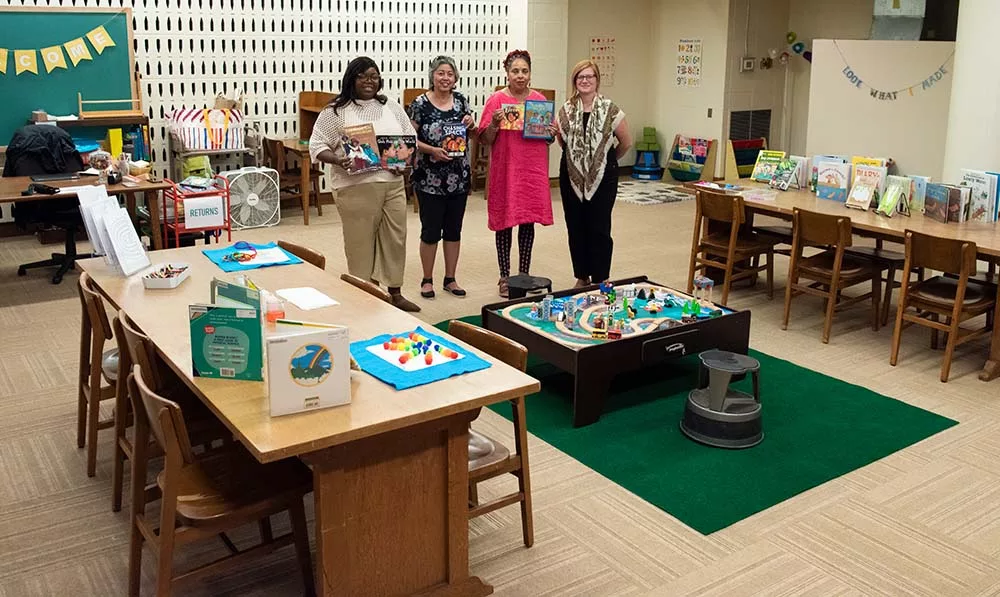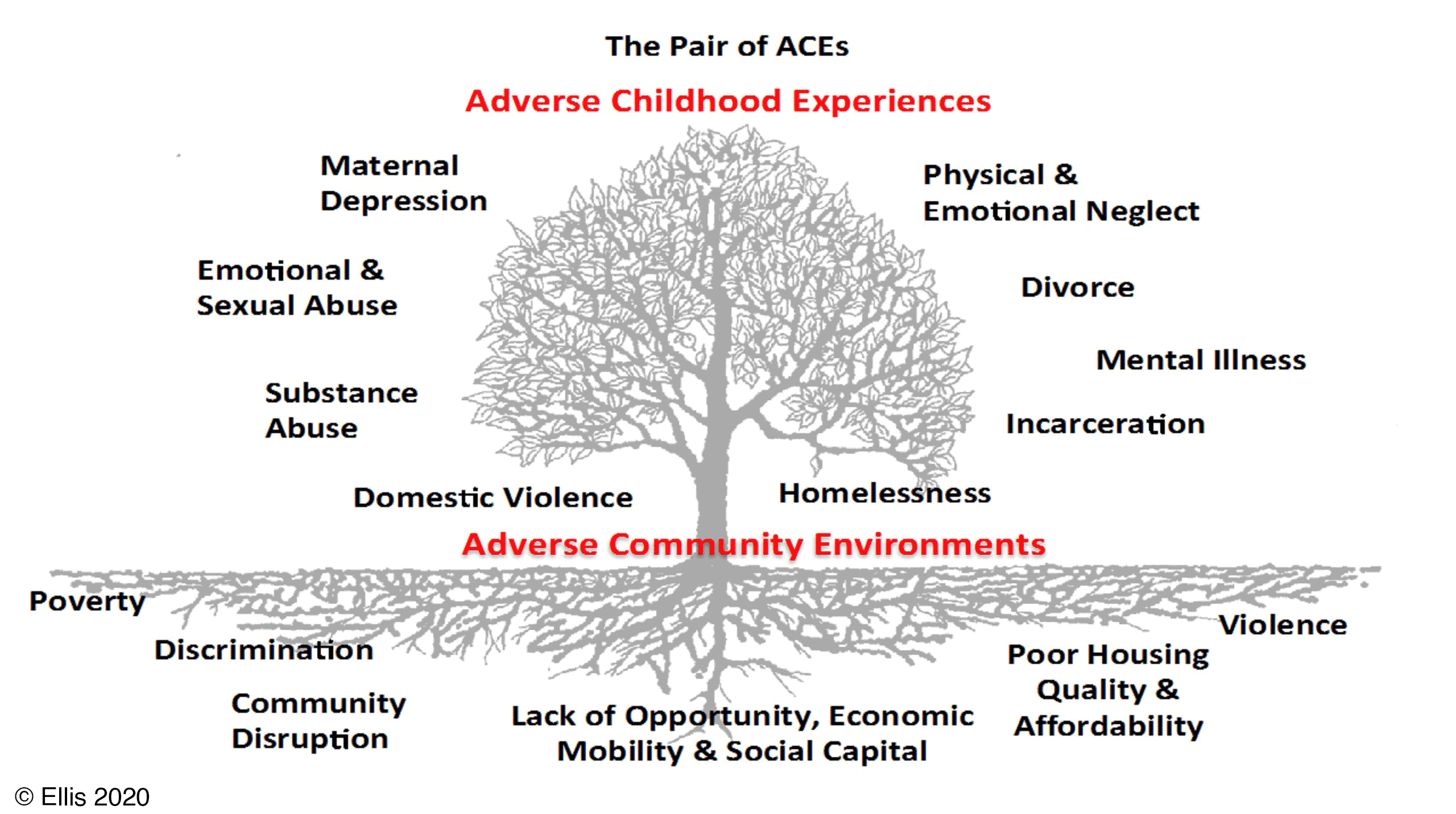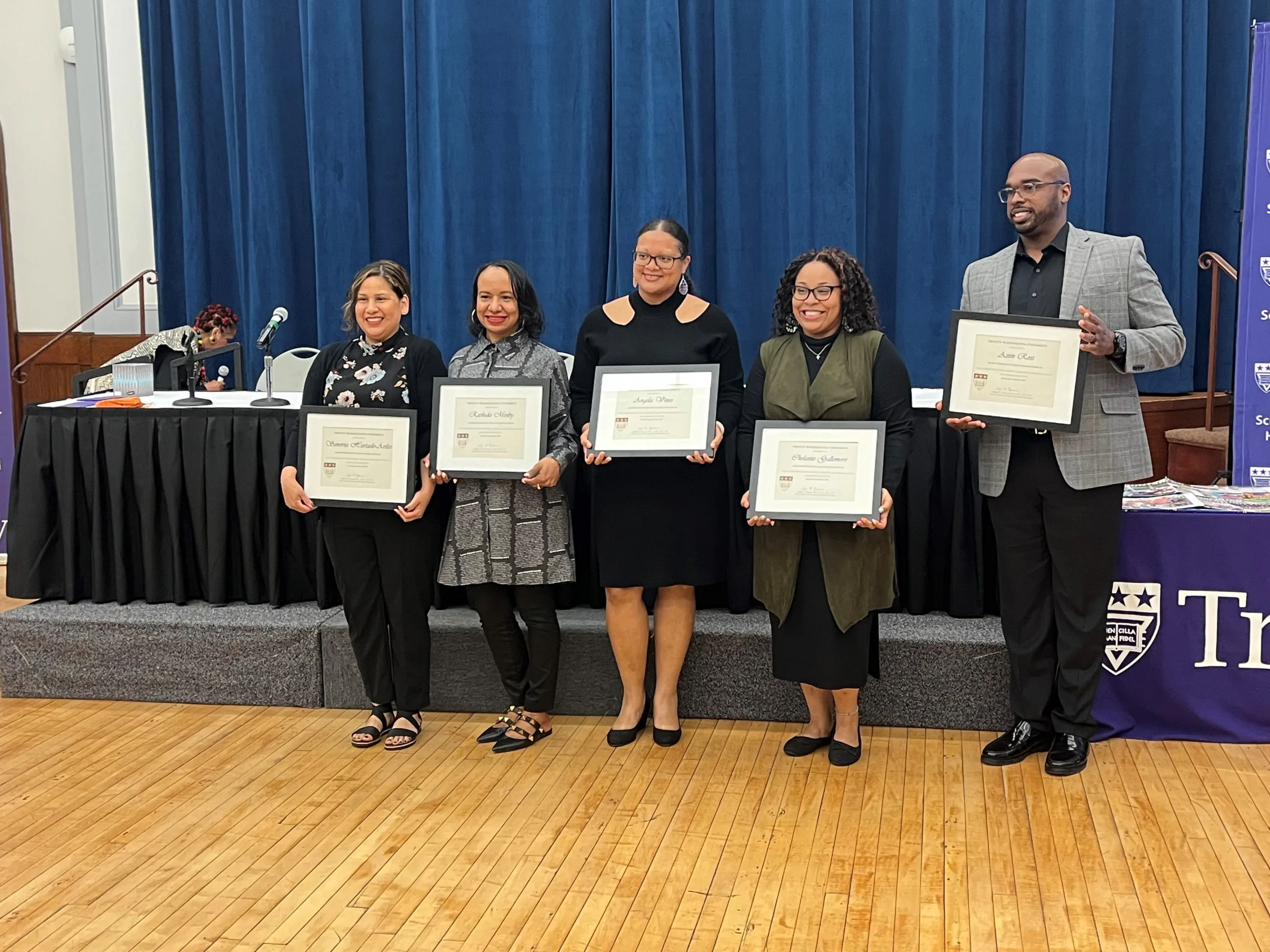Welcome to the Research Initiative on Adverse Childhood Experiences (ACEs) and Trauma at Trinity Washington University

Background
The ACEs and Trauma Research Initiative resides in the Counseling/Mental Health Programs of the School of Nursing and Health Professionals at Trinity Washington University. The Research Team has found that too many professionals working with children, youth, and their caregivers and parents have not been informed and educated about Adverse Childhood Experiences (ACEs), childhood trauma and the long-term physical and mental health ramifications of adversity and trauma.

The Rose That Grew From Concrete
Did you hear about the rose that grew
from a crack in the concrete?
Proving nature’s law is wrong it
learned to walk without having feet.
Funny it seems, but by keeping its dreams,
it learned to breathe fresh air.
Long live the rose that grew from concrete
when no one else ever cared.
-Tupac Shakur
Theoretical Orientation
Our theoretical framework is based on the transformative theoretical framework and model of Building Community Resilience (BCR) that addresses the pair of ACEs—Adverse Childhood Experiences and Adverse Community Environments—there is a need for buffers to build resilience that “build and strengthen community supports that support resilience and can prevent or alleviate the pair of ACEs on individuals and entire communities” (Ellis & Dietz, 2017, p. 587).

History of the Research Initiative on ACEs and Trauma
Beginning with the 2014-15 academic year, the faculty in the counseling and education programs decided to focus more intently on the numerous challenges that children and their families were encountering in the District of Columbia (D.C.) and the metropolitan area and examine how these challenges impacted the education and mental health of children in the public school system. Traditional studies have focused on income disparity, public schools that continue to fail, the marginalization of students of color and disabilities, and on students who come from low-income households. A significant failure has been that school systems and various government entities have not recognized the full extent and impact that poverty and associated trauma has on the developing brain.
In the spring of 2018, a core group of faculty began researching the topics of adverse childhood experiences, toxic stress, and trauma. The research group began examining the evidence based research related to the long-term effects of toxic stress and trauma on overall well-being. Research, conducted by Dr. Jack Shonkoff at the Center on the Developing Child at Harvard University, has shown that children who have prolonged exposure to stress show changes in the circuitry of the brain that affects the development of executive functioning skills (Shonkoff, 2017). Human beings are programmed with a fight or flight response to respond quickly in dangerous situations. However, for children who have experienced several “adverse childhood experiences” and long-term exposure to stress, their brains continue to produce cortisol even in the absence of a real threat that might require the fight or flight response.
Research has demonstrated that if the proper interventions are not in place, there are long-term impacts on the overall health and wellbeing of individuals into adulthood. Children who have adverse childhood experiences and develop toxic stress without appropriate interventions will become adults who are more likely to have higher rates of debilitating diseases such as diabetes, asthma, and heart disease (WHO, 2014). Adverse childhood experiences, toxic stress, trauma, and their effects are preventable. The brain’s plasticity and children’s ability to adapt and grow allow for the possibility of “post-traumatic growth” (Tedeschi & Calhoun, 2004). By developing proactive systems of support, schools, health providers, and others are able to counteract trauma.
Given the pervasive issues of: homelessness, unstable family relationships, poverty, food insecurity, physical, sexual and emotional abuse, exposure to violence, and racial and ethnic inequality as experienced by some children, youth and their families in the District of Columbia and the metropolitan area, local pre-K-12 schools and post-secondary institutions must be able to respond effectively to the effects of trauma. While some schools and school systems describe themselves as ‘trauma-informed”, members of the research team, in discussion with local principals, mental health professionals and educators, have determined that many of the professional staff in schools have not been educated nor informed about ACEs and trauma and if they have, the systems are not in place to proactively address issues related to trauma.


Members of the Research Team
- Dr. Cynthia Greer, Lead faculty for Research Initiative on ACEs and Trauma
- Dr. Luane Oprea, Faculty for Research Initiative on ACEs and Trauma
- Destinee Smith, Research Initiative on ACEs and Trauma
- Dr. Deneen Robin, Director of Clinical training for the Counseling Graduate Program
Funding Provided By
